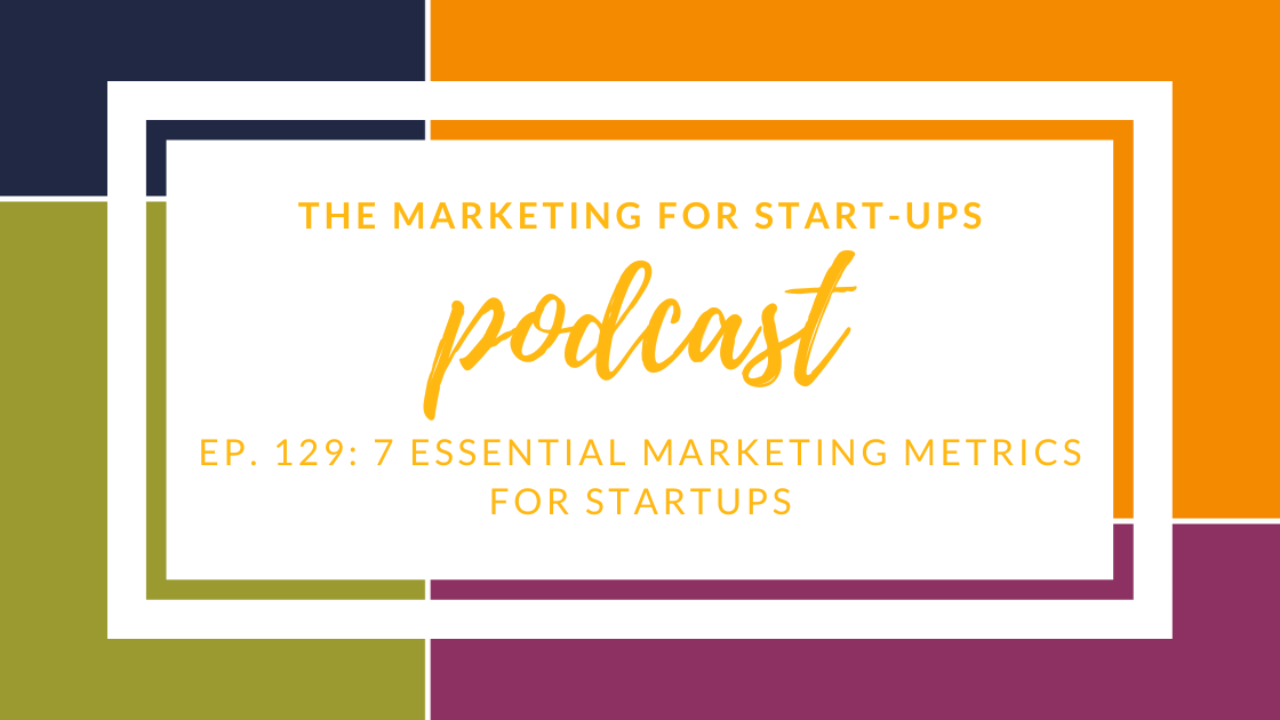7 Essential Marketing Metrics for Startups
Jun 07, 2023
If you're reading this, chances are you understand the importance of measuring the performance of your startup. That said, this doesn't necessarily mean that you are tracking performance metrics quite yet... and that is okay. Many founders get so caught up in execution that it seems frivolous to take the time to wrangle data and pause for a minute to review it. It feels like there aren't enough hours in the day! I get it.
But taking the time to set up a proper dashboard and scorecard for your business is essential to understanding what is working/not working, how to improve the performance of sales and marketing, and to know exactly where to invest your time and money.
Metrics matters.
If you're like me, data and numbers don't come naturally. In my own business, it has been something I avoided for years. Part of that was fear. I was scared to look at the numbers... afraid to learn that everything I was working so hard on was potentially not performing. I was scared to find that maybe my whole business didn't work. This mindset kept me stuck for a long time.
It wasn't until I understood that failure was an essential part of marketing that I stopped fearing the numbers and actually welcomed poor performance. That is because every failed idea gave me clues for the next iteration.
It is necessary to try, test, and fail before you can unlock the exact way to communicate with your target client or the precise lead magnet that will attract your ideal customer.
As I began making metrics reviews a weekly habit, I became interested in building out my own scorecard. A single document where I could collate all important data. One that was easy to digest and give me actionable insights. However, building this wasn't as easy as I thought it would be.
Searching for templates on Google left me stressed out and overwhelmed. It seems that there were a lot of reports to dig into and I didn't know how to put it all together in a meaningful way. Social Media, Ads, google analytics, CRM, and more. It was difficult to determine which information to pay attention to. Which metrics were the needle movers?
It wasn't until I narrowed down which metrics were most important to pay attention to, that I realized just how to organize it all.
7 Essential Marketing Metrics for Startups
-
Depending on your business model, you'll want to be tracking total revenue or monthly recurring revenue (MRR) and annual recurring revenue (ARR). Recurring revenue refers to businesses that have a membership or subscription element to what they sell.
-
Your website is your storefront. You need to be aware of how many visitors you are welcoming each month and understand how they interact once they have landed on your homepage. Do users immediately leave (bounce) or do they stick around, consuming your content and ultimately leaving their email address in exchange for a juicy freebie or promotion?
-
Leads are the lifeblood of any business and you want to make sure that you have a full and healthy pipeline of leads constantly coming into your business. When someone leaves you their email address, you have the opportunity to connect and educate that person and help bring them closer to purchasing with you.
-
Whether you are implementing paid ads or not, it's really important to keep track of your lead cost from the beginning. For early-stage founders who are using social media to grow, I suggest adding the cost of your social media manager and implementing CPL with that in mind. This will help you understand a bit more the ROI of growing a team as well.
-
As you being to understand how much it costs to close a business, we'll be able to figure out how much to spend on ads to maximize ROI.
-
This metric tracks how well your marketing and sales are working
-
Are your customers happy? Keep a close eye on these metrics to gain insights into how happy customers are with your product/ service.
Once you've aggregated these metrics, use my Perfect Marketing Scorecard to easily view and analyze your numbers. Then the last step is making time in your calendar to update and review it each week.
When you stay focused on performance, it helps get you close to your ultimate goal.
Take a listen!👇🏻
Get more like this.
New ideas, motivation and inspiration delivered to your inbox.
We hate SPAM. We will never sell your information, for any reason.

